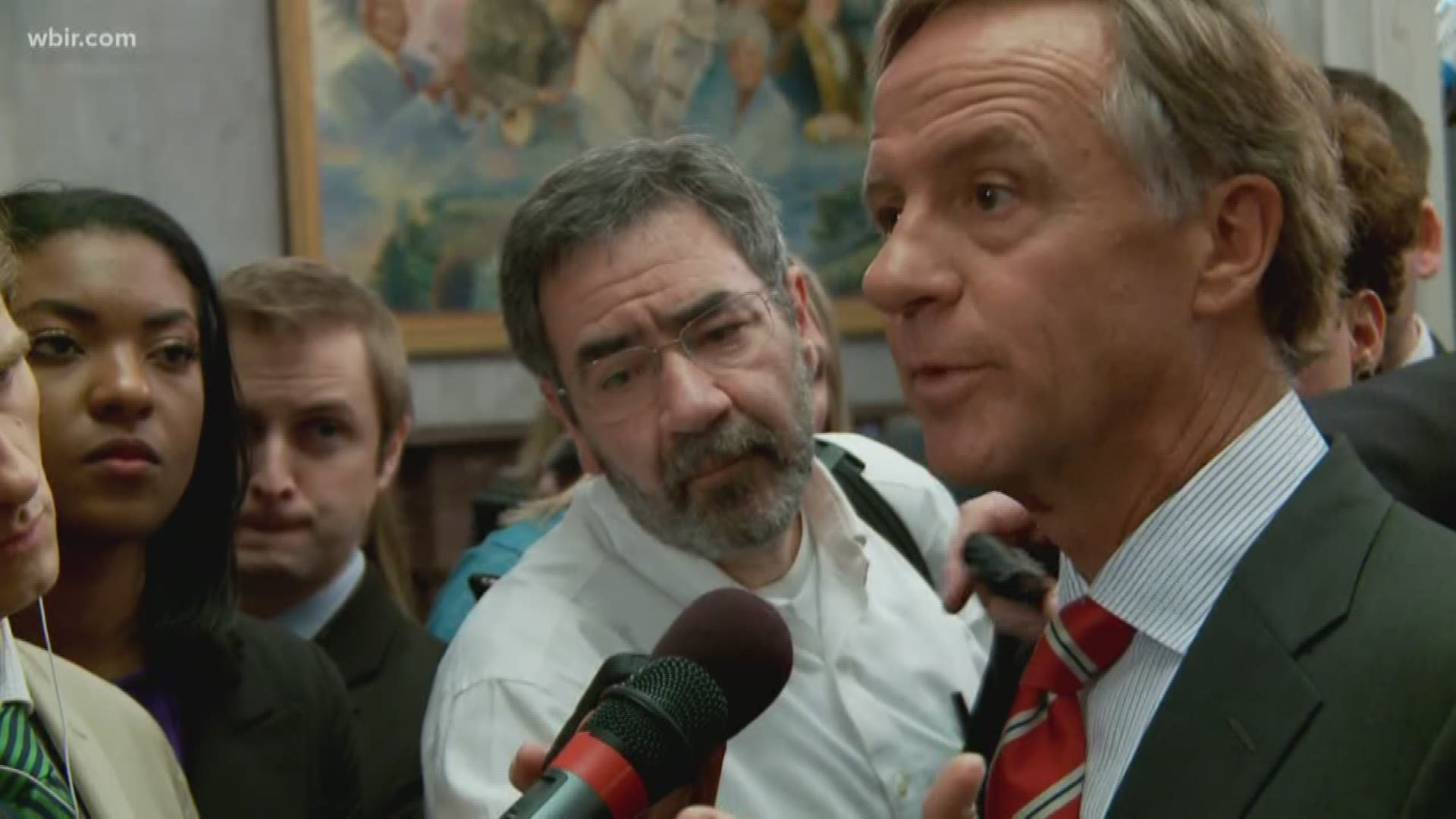Gov. Bill Haslam’s plan to address the opioid epidemic focuses on addiction prevention and rehabilitation for addicts — a combo attack many hope will put a significant dent in the number of residents affected.
About $25 million of the $30 million in the governor's budget, if passed, will go toward treatment.
In addition to the governor's two signature bills, lawmakers have introduced at least 15 other pieces of legislation dealing with opioids.
These include such measures as a proposal to decrease TennCare costs for opioid alternatives and one that would require prescribers to inform women of the risks of taking opioids during a pregnancy.
Another proposal calls for an opioid abuse hotline.
Still, state officials and lawmakers are careful to avoid characterizing the proposals as a plan to take people's prescriptions away. The Tennessee Medical Association has expressed concern that parts of the governor's plan could interfere with a doctors' relationship with their patients.
"It’s been very difficult to get that word out because we have a lot of people under doctors' care who need that long-term treatment," said Senate Majority Leader Mark Norris. "It's not as though the patient population that is undergoing treatment is all of the sudden going to be cut off. You are going to have people who think they need to receive more in the way of prescriptions and the questions are going to become, 'What alternatives are there?'"
In his final State of the State address, Gov. Bill Haslam discusses the opioid epidemic in Tennessee and the country.
'Squeezing the balloon'
An addiction epidemic, from a legislative perspective, is a tough nut to crack.
Experts such as Tommy Farmer, the special agent in charge of the Tennessee Bureau of Investigation’s Dangerous Drugs Task Force, have used the term “squeezing the balloon” to refer to the challenge of trying to transition an addicted population off opioids.
“If you squeeze too hard on one end, the other end expands,” Farmer said. “If you squeeze too hard in general, the balloon pops.”
►More: Gov. Bill Haslam unveils $30 million plan to combat opioid crisis in Tennessee
Opioid Prescriptions in Tennessee Counties
Opioid Prescriptions in Tennessee Counties (Photo: Mike Reicher)
The balloon, in Tennessee’s case, is roughly 300,000 residents misusing drugs and an estimated 83,000 or so who are addicted, according state numbers attributed to the National Survey on Drug Use and Health.
Farmer said research found that a 26 percent reduction in opioid prescriptions in Tennessee was almost mirrored by a similar increase in overdoses or near fatal drug-related incidents. That revelation, Farmer said, makes it clear addicts cut off from prescriptions will turn to more dangerous drugs on the street, such as heroin or fentanyl.
Sen. Ferrell Haile, R-Gallatin, is a pharmacist by trade and one of the legislators carrying Haslam's signature legislation. Haile said the problem is multi-generational and that rather than pushing people off opioids, the first priority is capping prescriptions for first-time users, labeled "opioid naive," before they can become addicted.
Department of Health Commissioner John Dreyzehner said past research and progress has played a role in narrowing the focus of Haslam's proposal.
Since the the state passed the Prescription Safety Act of 2012, Dreyzehner said the number of residents "doctor shopping" dropped by 76 percent, which likely saved lives.
But despite a 15 percent decrease in opioid prescriptions from 2015 to 2017, opioid-related deaths remain on the rise. According to state data, 1,186 people died of opioid overdose deaths in 2016, an average of more than three per day.
"We now know something we didn’t know a few years ago because there’s an important study that came out from the (Centers for Disease Control and Prevention) in March 2017, and there have been other studies that supported it," Dreyzehner said. "The study found that after five days of opioids, the probability of long-term use increased (to 10 percent), a percentage of risk much higher than was was previously thought."
Norris said a lot of negotiations are underway. Doctors don't want legislators infringing upon their ability to prescribe medication and treat patients, but on the other hand, the state is dealing with a problem of over-prescription.
"There’s going to be prescribing limits. There’s parameters around how that will work," Haile said. "I encourage medical folks, prescribers and pharmacists to be on the cutting edge of this."
On Feb. 2, the Tennessee Medical Association issued a statement saying Haslam's proposal "interferes with the physician-patient relationship." The group, which represents the state's doctors, has been critical of parts of Haslam's proposal, including a plan to limit an initial opioid prescription to a five-day supply, with "appropriate exceptions."
Senate Democratic Caucus Chairman Jeff Yarbro and other Democrats have also frequently criticized the governor as introducing a paltry budget to address the epidemic.
"There was some talk about initiatives that people are broadly behind, but I don’t think there was much ambition or reach in what the governor proposed tonight," Yarbro said after Haslam's State of the State address.
But Department of Mental Health and Substance Abuse Services Commissioner Marie Williams said she is hopeful of progress.
"I have never seen the three branches of government come together and uniformly say we will deal with prevention, treatment and criminal justice," she said.
Reporters Anita Wadhwani and Joel Ebert contributed to this report.
Reach reporter Jordan Buie at 615-726-5970 or on Twitter @jordanbuie.

